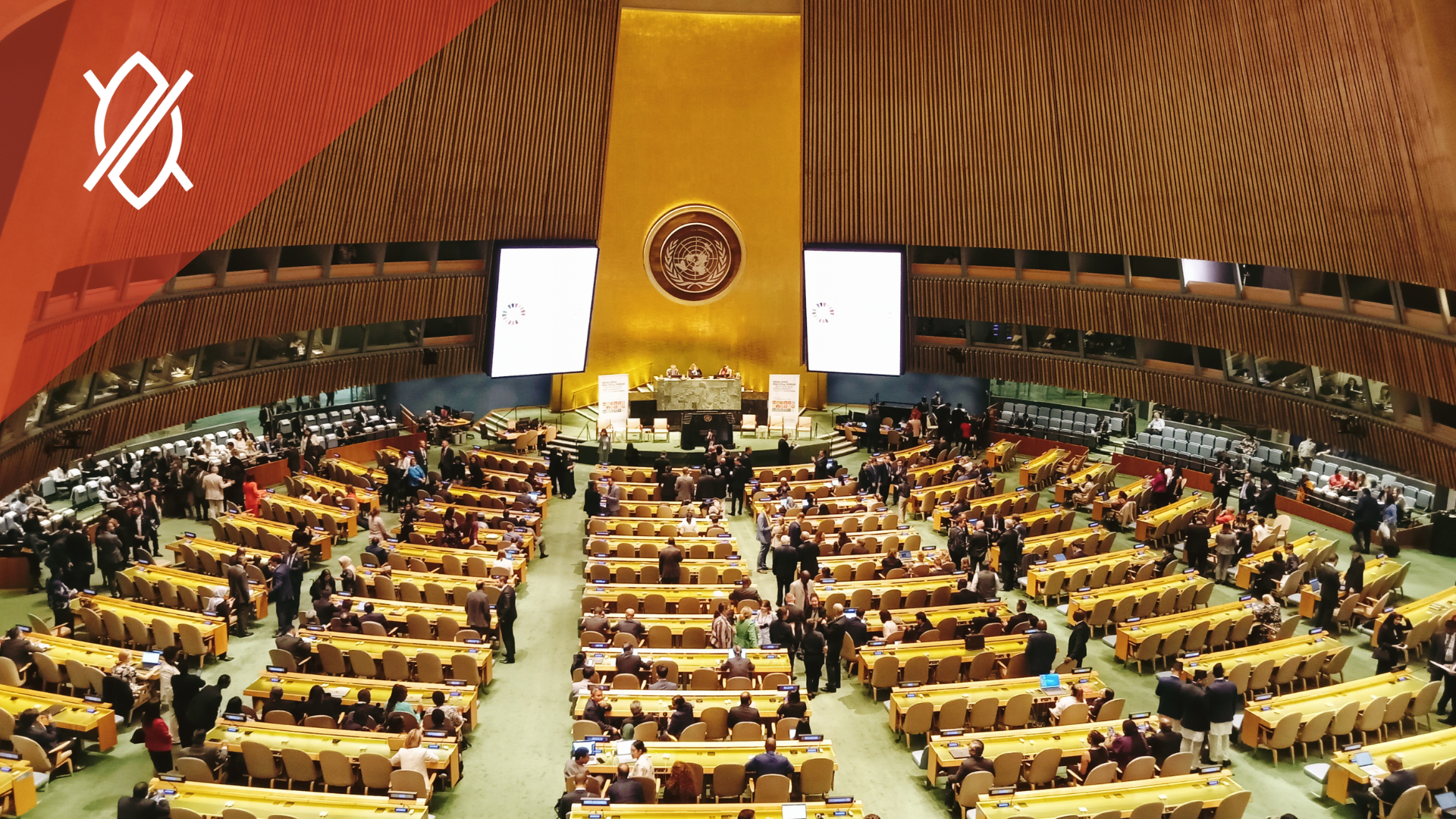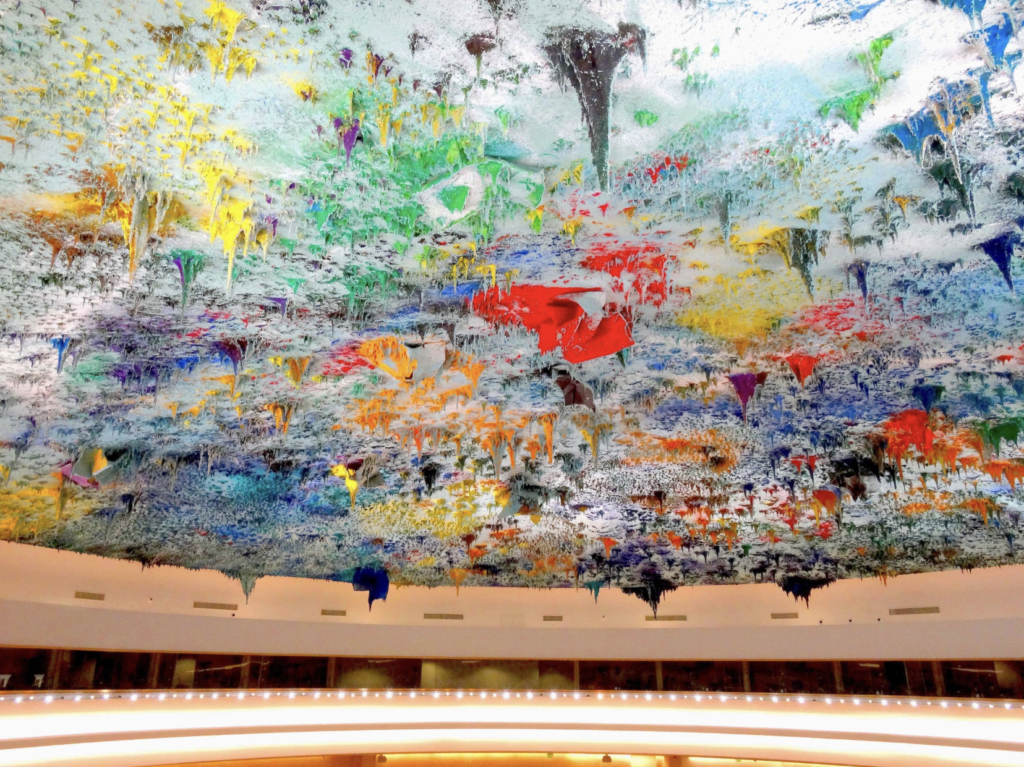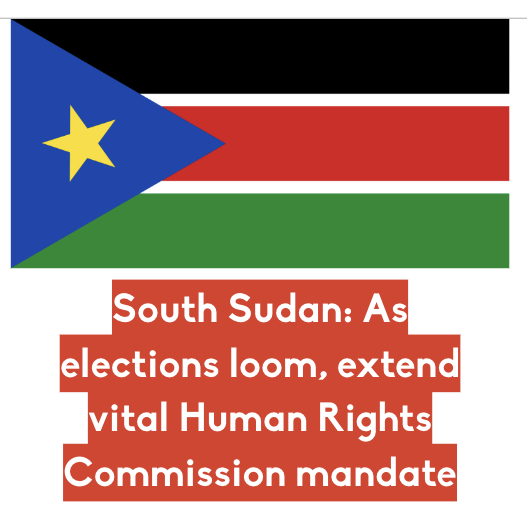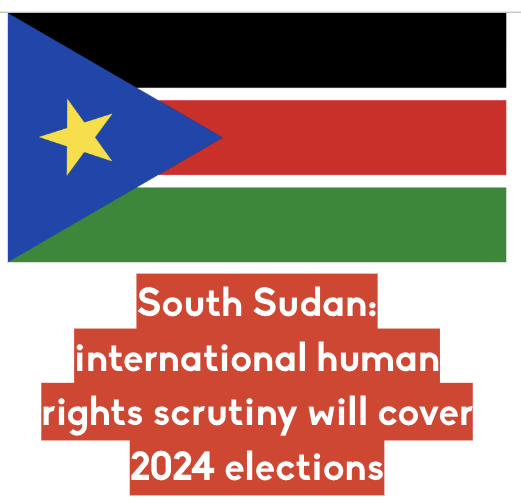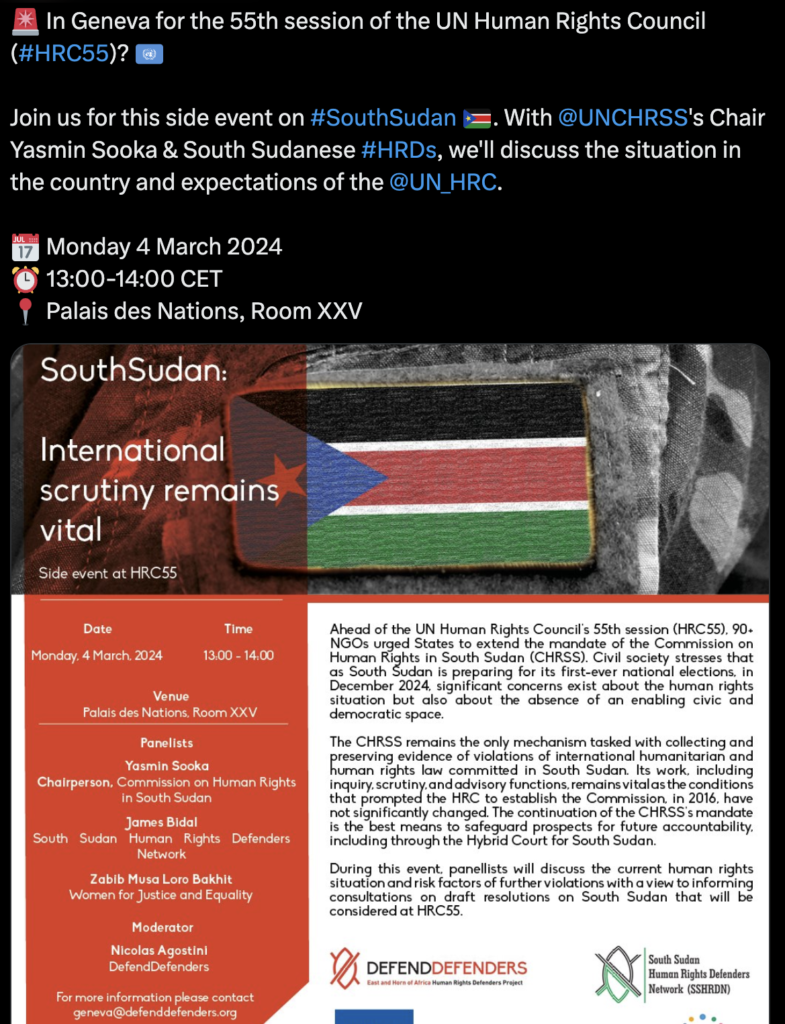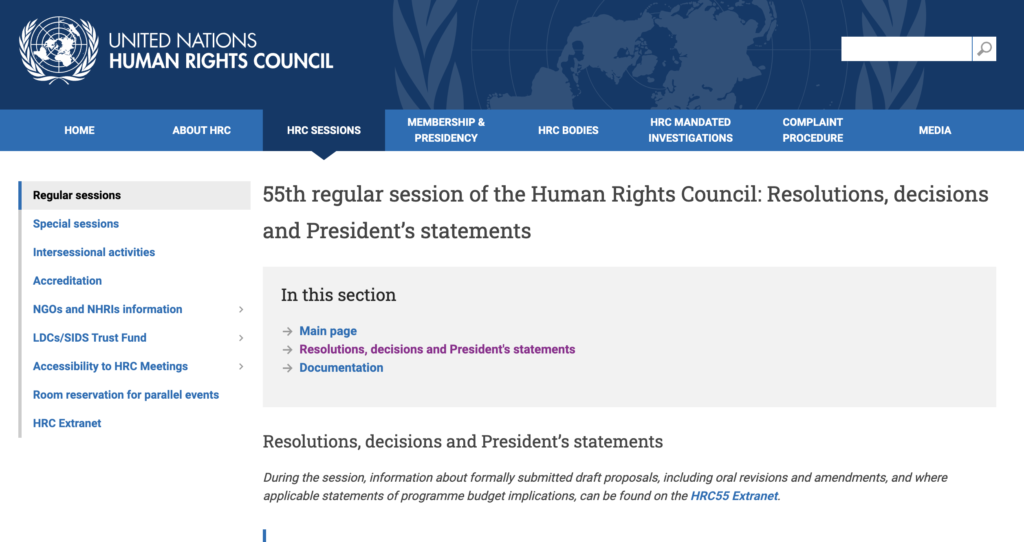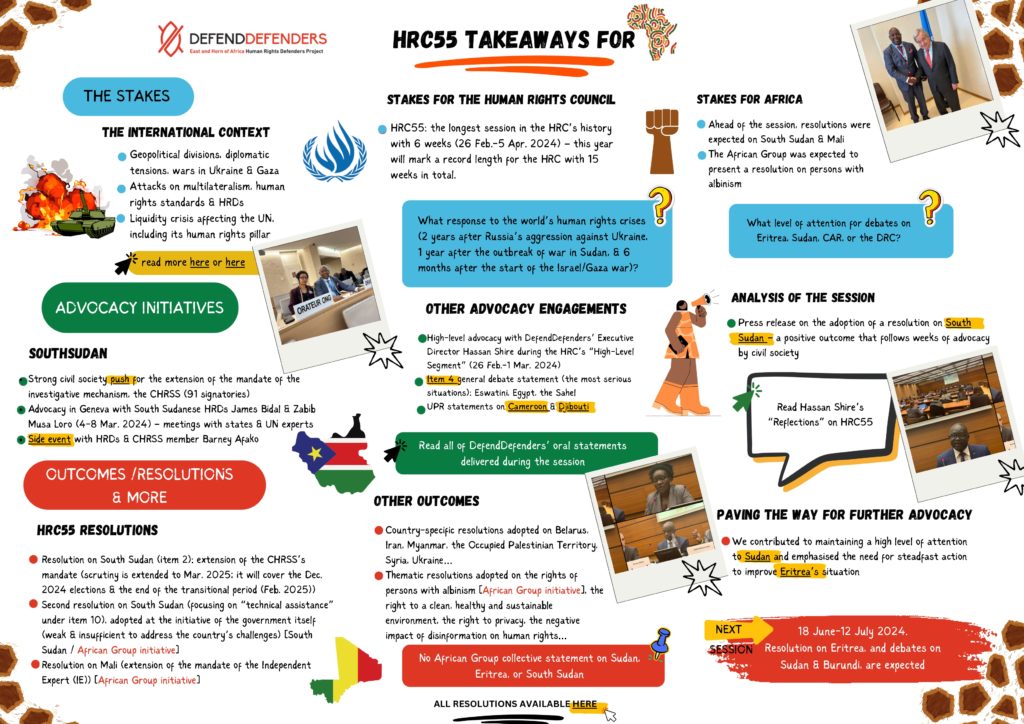The 55th regular session of the UN Human Rights Council (HRC55) set a new record as the longest session in the history of the UN’s top human rights body. This year will continue on the same pace, as the 56th (June-July 2024) and 57th (September-October 2024) sessions will add nine weeks to this total. The Council will have been in session for 15 weeks this year. Longer sessions come alongside deteriorating human rights situations globally and a need for international scrutiny.
High-level engagement
For DefendDefenders, HRC55 started with the traditional “High-Level Segment” (HLS) – an opportunity to meet with dignitaries, state representatives and UN officials to share our concerns and recommendations. This year, together with partner non-governmental organisations (NGOs), we met with the UN Secretary-General, António Guterres, state representatives, including Norway, Ethiopia and Cabo Verde (an Ubuntu Hub City host), and special procedure mandate-holders (independent experts appointed by the Council).
During the meetings, we focused on human rights crises in the East and Horn of Africa, including Sudan. Despite the creation of a strong investigative mechanism, the Fact-Finding Mission (FFM), which was a milestone for accountability in the country, we deplored both (i) that the armed conflict continues unabated between warring parties and (ii) that the liquidity crisis affecting the UN is negatively impacting its human rights operations. Six months on, the Sudan FFM is not fully staffed. At the time of publishing these “Reflections,” 11 FFM Secretariat positions are in the process of being filled, out of the 18 authorized by the General Assembly. This situation is likely to prevent the FFM from producing a comprehensive report by the Council’s 57th session (September 2024). We urge all states to pay their dues to the UN’s regular budget, in line with their legal obligation as members of the organisation.
On another note, HRC55 marked the sixth anniversary of the opening of DefendDefenders’ Geneva office, which remains an invaluable asset for our advocacy work. With our permanent presence in Geneva and systematic participation in all sessions of the HRC and the African Commission on Human and Peoples’ Rights (ACHPR), we are one of the few NGOs that are able to “connect the dots” and conduct holistic advocacy at both the UN and regional levels. Against this backdrop, one of our objectives is the continued cross-pollination of HRC and ACHPR outcomes (resolutions and decisions) to strengthen policy actions for the safety of human rights defenders (HRDs).
South Sudan: steadfast advocacy
On 3 April 2024, the Council adopted an important resolution on South Sudan, ensuring continued international scrutiny of the country’s human rights situation. With the extension of the mandate of the Commission on Human Rights in South Sudan (CHRSS) – the main achievement of the resolution – the next reporting period will cover South Sudan’s transitional period (now planned to conclude in February 2025), as well as national elections (planned for December 2024).
This positive outcome follows weeks of advocacy by civil society. Ahead of the session, over 90 NGOs highlighted that as elections loom and risk factors of further violations are significant, the Council should not lift its scrutiny, but rather extend the CHRSS’s mandate. DefendDefenders coordinated the drafting and development of this joint letter. During the session, we led advocacy initiatives with South Sudanese HRDs who travelled to Geneva, namely James Bidal and Zabib Musa Loro. We met with a large number of stakeholders (states and experts) and held a side event with the CHRSS and partners.
We will continue to monitor the country’s situation. As we made clear in statements, the Human Rights Council should stand ready to respond to any developments in South Sudan.
On the session’s last day, 5 April 2024, the Council also adopted a resolution on “technical assistance” for South Sudan. Civil society and other independent actors have emphasised that although technical assistance can be useful, it alone cannot address the country’s challenges without political will to address violations and impunity.
Next steps at the Council
In oral statements delivered throughout the session, we drew states’ attention to violations committed on the African continent. During adoptions of Universal Periodic Review (UPR) reports, we raised concerns about Djibouti and Cameroon – two countries whose human rights record deserves more international scrutiny. In a general debate on item 4 (dedicated to the most serious situations), we mentioned Eswatini, where the late Thulani Maseko’s wife, Tanale, is subjected to unacceptable reprisals for her struggle for justice for her husband’s killing, as well as Egypt and the Sahel.
Last, we highlighted the need for steadfast action to improve Eritrea’s human rights situation. The next regular session, HRC56, will take place in June-July 2024. We will push, among others, for a strong resolution extending the mandate of the Special Rapporteur on Eritrea.
Hassan Shire
Executive Director, DefendDefenders and Chairperson AfricanDefenders
Oral Statements
Letters and Statements
Press Release
Side Events
Resolutions
- South Sudan (extension of the CHRSS’s mandate)
- South Sudan (technical assistance)
Summary of the reflections

